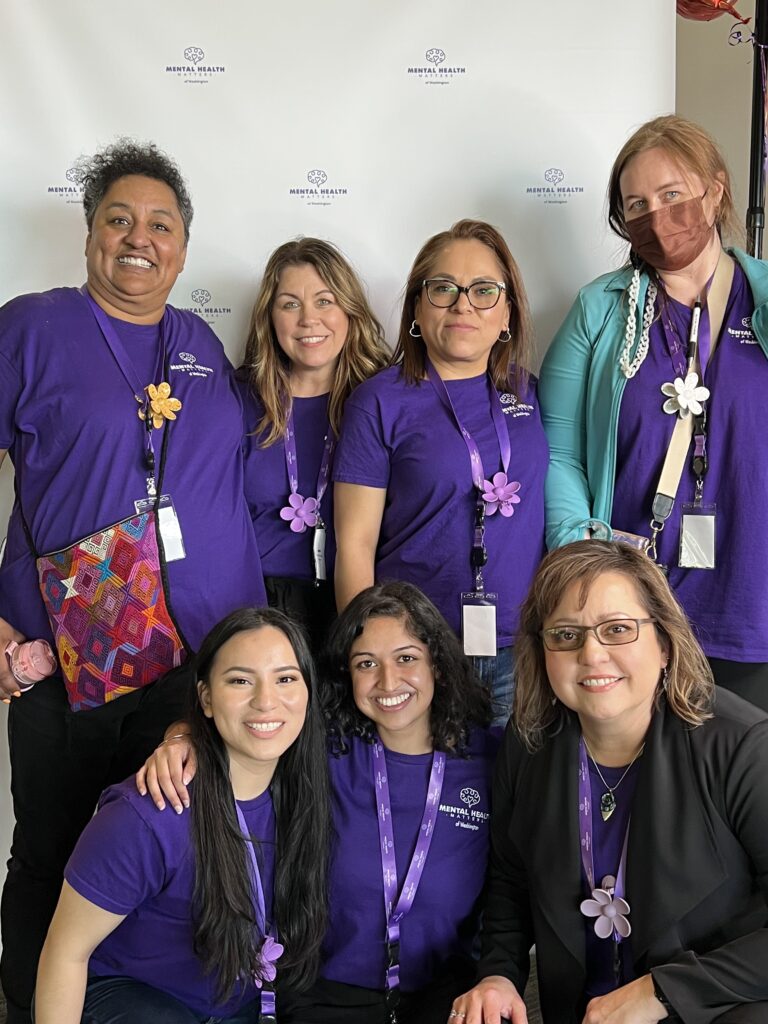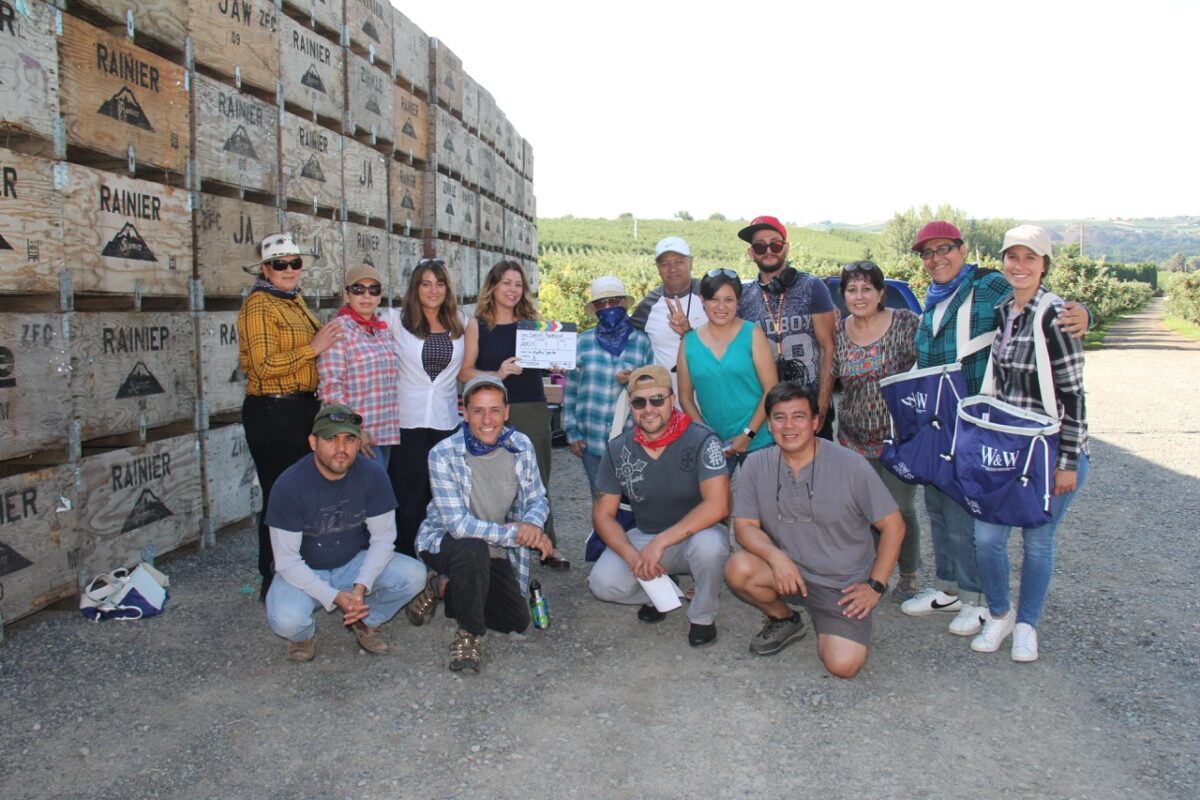Dr. Jody Early, professor in the University of Washington Bothell’s School of Nursing & Health Studies, was recently recognized as UW Bothell’s 2023 Outstanding Community-Engaged Scholar.
The award was created in 2020 to recognize impactful community-engaged scholarship by faculty who collaborate across institutions of higher education and the broader community. The annual awardee is selected for work that engages community partners in a mutually beneficial exchange of knowledge and resources.
The selection committee for the award highlighted Early’s “commitment to advancing the scientific knowledge in her area and ensuring the populations and communities with whom she works receive the benefits of this work.”
“Her work has had a profound impact on the health of communities locally, regionally and internationally,” committee members wrote in their award letter to Dr. Sharon A. Jones, vice chancellor for Academic Affairs.
In and with communities
When she first started her journey in academia more than 25 years ago, Early’s scholarship was primarily in communities, not with community. It wasn’t until later that she was introduced to the concept of community-based participatory research.
“It was because of the work I did with my mentor and my study of critical theory that changed everything for me,” she said. “Community-based participatory research has been an anchor to my teaching, scholarship and service ever since.”
Growing up in a family of eight children raised by a single mother, Early said she knows what it’s like to experience poverty and to be a first-generation college student.

“Mentoring and teaching provide me with opportunities to support students with backgrounds and experiences similar to mine, and to learn from and support those whose lives are different than my own,” Early said.
Her work as a scholar-practitioner is closely intertwined with her role as an educator. Through Early’s instruction and mentorship, students gain experience in research and learn what it means to be a community-engaged scholar.
“I often reflect on how my own path to higher education and public health would not have been possible had it not been for strong mentors in my life who led me to opportunities and helped me believe in my abilities and power,” Early said. “I am committed to doing the same for my students and for the communities I serve — to use my power and privilege to break down the barriers within our institutions that keep perpetuating the same systems of oppression.”
Early’s research and work in service to various communities focuses primarily on eliminating health disparities and improving systems, policies and resources that improve quality of life for individuals and communities.
A passion for mental health
In 2021, Early co-founded Mental Health Matters of Washington, a community-based program that strives to promote mental health for all through tailored health education, community engagement, resource navigation and social support. The program offers training in English and Spanish for people to become peer mental-health navigators in their communities.
Early’s experiences as a parent and caregiver, as well as her work with youth and college students, led her to co-develop the program, she said. She is currently the principal investigator and co-director of the program.

“When my daughter was diagnosed with an acute mental health condition, navigating through a non-existent ‘system’ of behavioral health care was exhausting and confusing,” Early said, adding that it was hard to imagine how difficult navigating that system would be for someone who not only didn’t work in public health but whose primary language also isn’t English.
The program was funded through several community partners, including Verdant Health Commission, Skagit Public Health, North Sound Accountable Communities of Health and UW Bothell.
The program takes both an intersectional and an intergenerational approach, said Early. “Our primary goals are to reduce stigma about mental health and to support communities most impacted by systems of exclusion and oppression,” Early said. “Evidence from research in other parts of the world demonstrates that tailored popular education methods and peer support are promising strategies for early intervention for those who may be struggling with their mental health.”
In May 2023, Early and the team held their first MINDfest event — a free, mental health arts festival designed to build community through interpersonal healing. They also plan to make the festival an annual event.
Sexual harassment among farmworkers
For the past eight years, Early has also co-led ¡Basta! Preventing Sexual Harassment in Agriculture, a program developed by NHS faculty at UW Bothell with more than 48 partners and stakeholders — including women farmworkers, human rights organizations and industry partners.
Early joined the project in 2015 after Dr. Victoria Breckwich Vásquez, ¡Basta! co-founder and NHS lecturer, and other colleagues had completed exploratory studies to examine farmworkers’ lived experiences. Breckwich Vásquez also launched a statewide coalition to address the issue through education and policy change.
Together with her students, Early spearheaded a social marketing campaign to raise awareness about the issue. “Sexual harassment is pervasive everywhere but especially within agriculture,” she said. “While education alone is not enough, it’s an important step in raising social consciousness, improving workplace climate and safety, and mobilizing people at the grassroots level.”
The ¡Basta! toolkit features a wide range of bilingual training materials based on farmworkers’ experiences, including a facilitator’s guide, workplace posters, wallet cards for workers, videos, audio novellas, a bilingual comic and a sample workplace policy. Early and Breckwich Vásquez also co-produced a video filmed in the Yakima Valley with farmworkers who catalyzed the program’s development.
“¡Basta! was the hardest yet most rewarding community-based participatory research project of my career to date,” Early said. “This project pushed me to grow my public scholarship. The impact of our efforts is still manifesting at local and national levels.”
Since the program’s launch in 2019, the Pacific Northwest Agricultural Safety and Health Center has provided more than 800 electronic and hard copies of the video and toolkit. In 2020, ¡Basta! received national recognition from the American Public Health Association, which awarded the program the Health Education Materials Award.
Lesson in community engagement
In addition to the community-engaged service and research Early does, she also enjoys finding ways to bring community engagement into the classroom.
“My research, teaching and service are tightly interwoven,” she said. “I think staying involved in public health practice is vital to my scholarship and to my teaching. I am able to involve students in all of my community and global collaborations.”
In many of her classes, Early integrates what she calls a “partner challenge,” which involves project-based experiential learning. Students work on a project posed by a community partner and present their findings at the end of the quarter, with their peers, Early and the partner stakeholders providing feedback.
“It’s an opportunity for students to gain experience translating what they are learning directly into practice, but they also get to experience what it means to work in partnership with a community organization and build their social capital,” she said.
Among the global partnerships Early has co-created is the Transnational Education and Community Health Collaboratory. Co-founded with Dr. Niamh Murphy and faculty from Southeastern Technological University in Ireland, TEaCH CoLab helps students gain experience engaging with their communities to tackle pressing public health challenges using community-based and participatory strategies.
The grant-funded program, sponsored by the EU’s Erasmus+ Mobility Program and the Republic of Ireland, connects students and faculty across continents to work together to tackle population health issues through community-engaged projects, Collaborative Online International Learning experiences and through faculty and student exchanges.
The importance of collaboration
Among the many community partners Early has collaborated with over the years is the Providence Institute for a Healthier Community. Founded in 2016, the nonprofit aims to raise awareness, provide resources and build community solutions for a healthier community in Snohomish County.
“Jody was integral in helping to support key department concepts and goals, which remain central to how we do our work today,” said Jessica Burt, interim director for the institute, in her letter recommending Early for the award. “Jody is not only a champion for community health education, well-being and equity, she is a true collaborator, providing shared resources, alliances and knowledge for the benefit of all.”
Early helped to advise and launch the institute’s Health and Well-Being Monitor, an annual survey used to measure the well-being of 800,000 Snohomish County residents. She also presented at local, national and international conferences to raise awareness and to promote visibility of the community-driven survey.
Throughout this partnership, Early has involved her students in ongoing fieldwork opportunities. Nearly 50 students have helped to build the institute’s community resource hub, which currently has more than 2,600 local listings. During the coronavirus pandemic, Early connected students with the institute’s Snohomish County Mask Brigade to make and distribute hundreds of masks in the community.
“Jody not only does amazing work on behalf of UW Bothell and aligned community partners, but she also is a pleasure to work with, a mentor for students and professionals, and an inspiring advocate for community health education and public health in our region,” Burt said.
Jody was integral in helping to support key department concepts and goals, which remain central to how we do our work today. Jody is not only a champion for community health education, well-being and equity, she is a true collaborator, providing shared resources, alliances and knowledge for the benefit of all.
Jessica Burt, interim director for Providence Institute for a Healthier Community
It takes a community
Early says that if she had to sum up the goal of her work in and out of academia — and her core reason for working in public health and higher education — it would be: “Striving to create a more just, equitable and inclusive world.”
This wouldn’t be possible without many cross-sector partnerships and the support of a community, she added. The partners she’s worked with over the years couldn’t agree more, noting the integral role she’s played to make their collaborative goals a reality.
“What I admire about Jody is that she doesn’t give up,” said Elizabeth Torres, director of operations for Radio KDNA and part of the team that first launched ¡Basta! “Her passion and dedication many times motivated all of us to continue even when we did not have what we needed to continue. It’s easier to accomplish the goals when you work with people who are invested in helping the community.”
When Early learned she’d received the Outstanding Community-Engaged Scholar Award, she felt conflicted about being awarded as an individual because the work itself is inherently collective.
“One cannot do it alone, nor is a single person the sole reason for any progress or success,” she said. “So I’d like to honor the dedicated people, primarily women, who are also working with me, to whom I look up to and who inspire me to keep going.”




